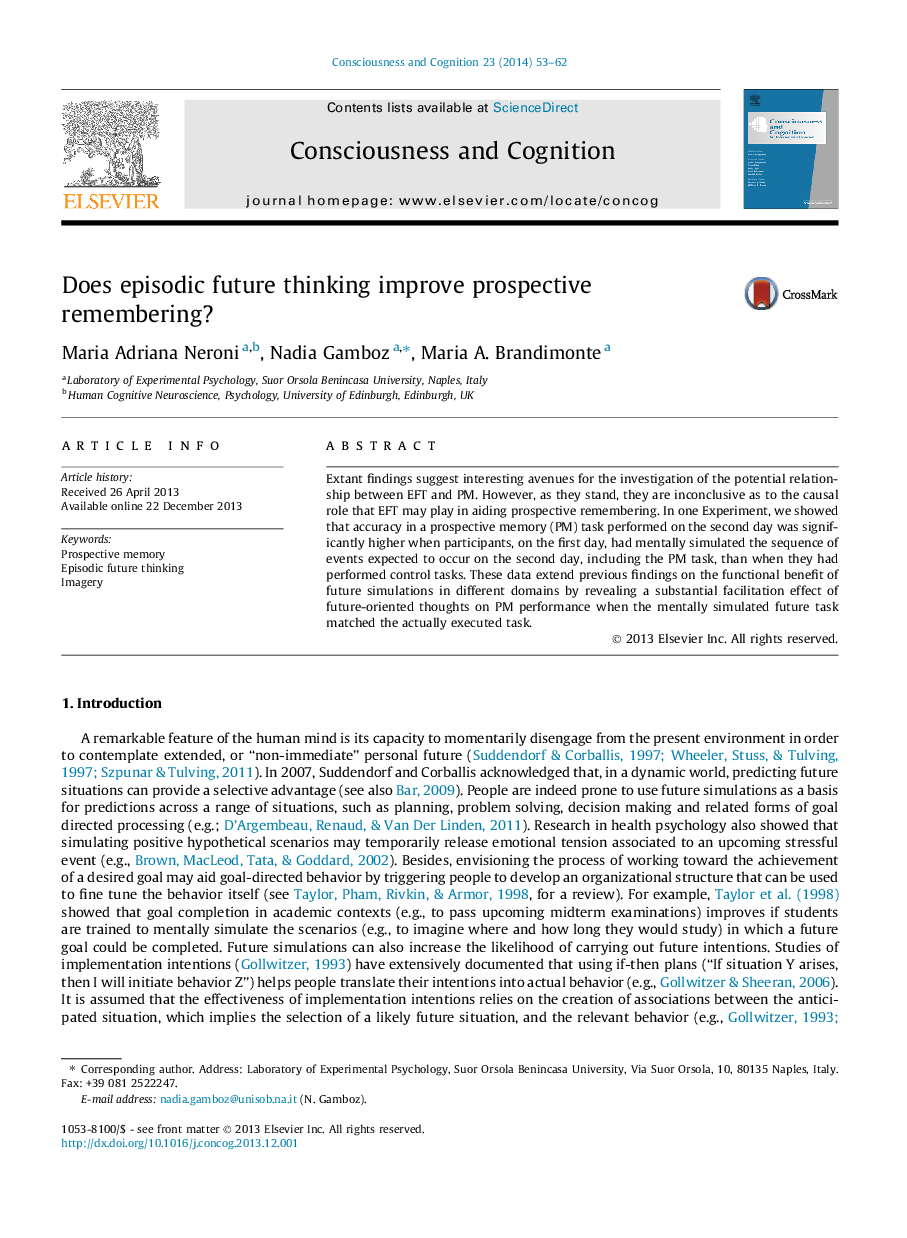| Article ID | Journal | Published Year | Pages | File Type |
|---|---|---|---|---|
| 927595 | Consciousness and Cognition | 2014 | 10 Pages |
•The present Experiment consisted of two sessions occurring in two consecutive days.•Participants envisioned the future event on the first day and performed the prospective memory task on the second day.•Episodic future thinking increased prospective remembering as compared to control conditions.
Extant findings suggest interesting avenues for the investigation of the potential relationship between EFT and PM. However, as they stand, they are inconclusive as to the causal role that EFT may play in aiding prospective remembering. In one Experiment, we showed that accuracy in a prospective memory (PM) task performed on the second day was significantly higher when participants, on the first day, had mentally simulated the sequence of events expected to occur on the second day, including the PM task, than when they had performed control tasks. These data extend previous findings on the functional benefit of future simulations in different domains by revealing a substantial facilitation effect of future-oriented thoughts on PM performance when the mentally simulated future task matched the actually executed task.
